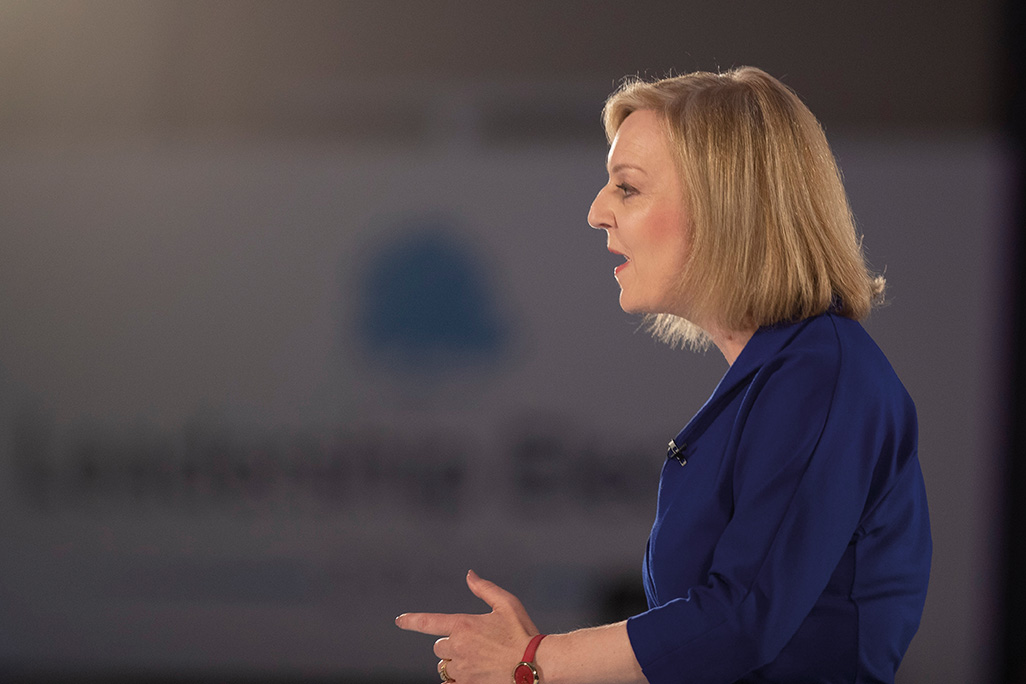A newly elected party leader and Prime Minister normally expects their first party conference to be a victory lap. Self-evidently, the Conservative party conference in Birmingham at the beginning of this month was far from that for Liz Truss.
Whatever the rights or wrongs of the ‘fiscal event’ presented by Chancellor Kwasi Kwarteng on 23 September, the political reality is that the U-turn on the cut to the 45p rate of income tax may well come to define Liz Truss’s premiership. To be forced into such a reversal so early as Prime Minister speaks volumes on several fronts.
Litany of crises in Westminster threaten to impact bus traction
First, it shows that Liz Truss is not in control of her parliamentary party. Given that 69% of Conservative MPs did not vote for her in the final MP ballot in the leadership contest, that is hardly surprising. Second, she made a fundamental error with her Cabinet reshuffle by not offering a few positions to those who didn’t support her leadership campaign.
She only rewarded loyalists, so there is, as a result, a sufficiently large number of disgruntled MPs on the backbenches seemingly willing to cause trouble, among which our former Secretary of State for Transport Grant Shapps appears to be one. Indeed, Liz Truss went so far as to tell Mr Shapps that despite being a good Transport Secretary and an impressive media performer, there was no place for him in her Cabinet as he did not support her in the leadership contest.
Shapps not alone in stirring up trouble for Truss
The Conservative backbenches are now bursting at the seams with very experienced former ministers – the proverbial ‘big beasts’ – and they are showing signs of being all too willing to flex their muscles.
Third, Liz Truss and her Chancellor made a fundamental mistake in not properly laying the ground for the content of the ‘fiscal event’ – a mistake that, to be fair, she acknowledged. Indeed, they rushed the ‘mini Budget’ for no obvious reason. Much of the content could have been delayed, such as the cut to stamp duty and the 1p reduction in the basic rate of income tax, until the main Budget in March 2023. This unseemly haste was totally unnecessary.
And finally, the failure to lay out fully how the tax cuts and other spending measures, such as the energy relief package, would be paid for with the usual report from the Office of Budget Responsibility was a schoolboy error of major proportions. The reaction from the markets and Conservative MPs was, dare I say it, wholly predictable – and that is not said with the benefit of hindsight!
What comes next for Westminster circus?
It is extraordinary that just four weeks after her election as party leader and Prime Minister, parts of the parliamentary party are already whispering about triggering another no-confidence vote to force Liz Truss out. That would be an act of political self-harm beyond comprehension, because the electorate would surely not understand how a political party can elect a leader one day and then decide to sack her or him the next. It would make the party look totally ridiculous.

The problem is that the parliamentary party and the wider party membership do not see eye-to-eye on who should be leader.
Despite the risks, I can see that Conservative MPs looking at the dire state of opinion polls might feel that they have no choice but to move against Liz Truss.
The YouGov poll of around a week ago that gave Labour a 33% lead would reduce the Conservative party to a rump of just 60 or so MPs if an election was held today, and it would give Sir Keir Starmer a parliamentary majority of around 350!
Let’s see what happens when MPs return to Westminster after the party conference season. I am reluctant to make any predictions, as in this febrile atmosphere, almost anything could happen – and probably will. There is no doubt that Liz Truss’s hold on power is fragile. There is a sense that the Conservative parliamentary party is becoming ungovernable.
The likelihood of further successful rebellions preventing Liz Truss from implementing policies of choice is high. And with each successful rebellion, her hold on power will weaken. Some MPs have openly suggested that she may be gone by Christmas. I am not so sure.
But will she still be leading the party come the next general election? Again, I am not sure. After over 12 years in power, has the time come for the Conservative party to regenerate itself with a period in opposition? After all, it surely cannot be good for a party to be in power for ever.
Will expanded brief distract Baroness Vere from bus concerns?
Let’s turn out minds to transport. Baroness Vere remains as a parliamentary under-secretary and she keeps the local transport and bus brief. That is no bad thing, as at least it maintains continuity. But it does not alter the fact that the bus industry remains in a difficult place, with further service reductions still a distinct probability in the absence of a long-term funding plan.
With spending cuts looking an increasingly likely prospect – and let’s not forget that departmental budgets are already eroded by inflation – I am questioning whether the Treasury is ever going to agree to a long-term bus funding plan. To date, the government has only applied a sticking plaster to the bus industry.
The first thing that Lady Vere needs to do is persuade her Secretary of State, Anne-Marie Trevelyan, that buses are really important. I wonder how successful she will be. And we no longer have a Prime Minister that has expressed such a positive interest in bus.
And let us not forget that Lady Vere now has the politically exciting aviation brief. I am worried that aviation policy will dominate her attention and that buses will be relegated to an ‘also ran’.
It was notable that in her party conference speech, Anne-Marie Trevelyan highlighted Lady Vere’s aviation brief, and specifically the aviation decarbonisation agenda, which is challenging to say the least. Not a single mention of buses in the speech. I suggest that the bus industry is going to have to work hard to keep bus policy on the political radar.

























